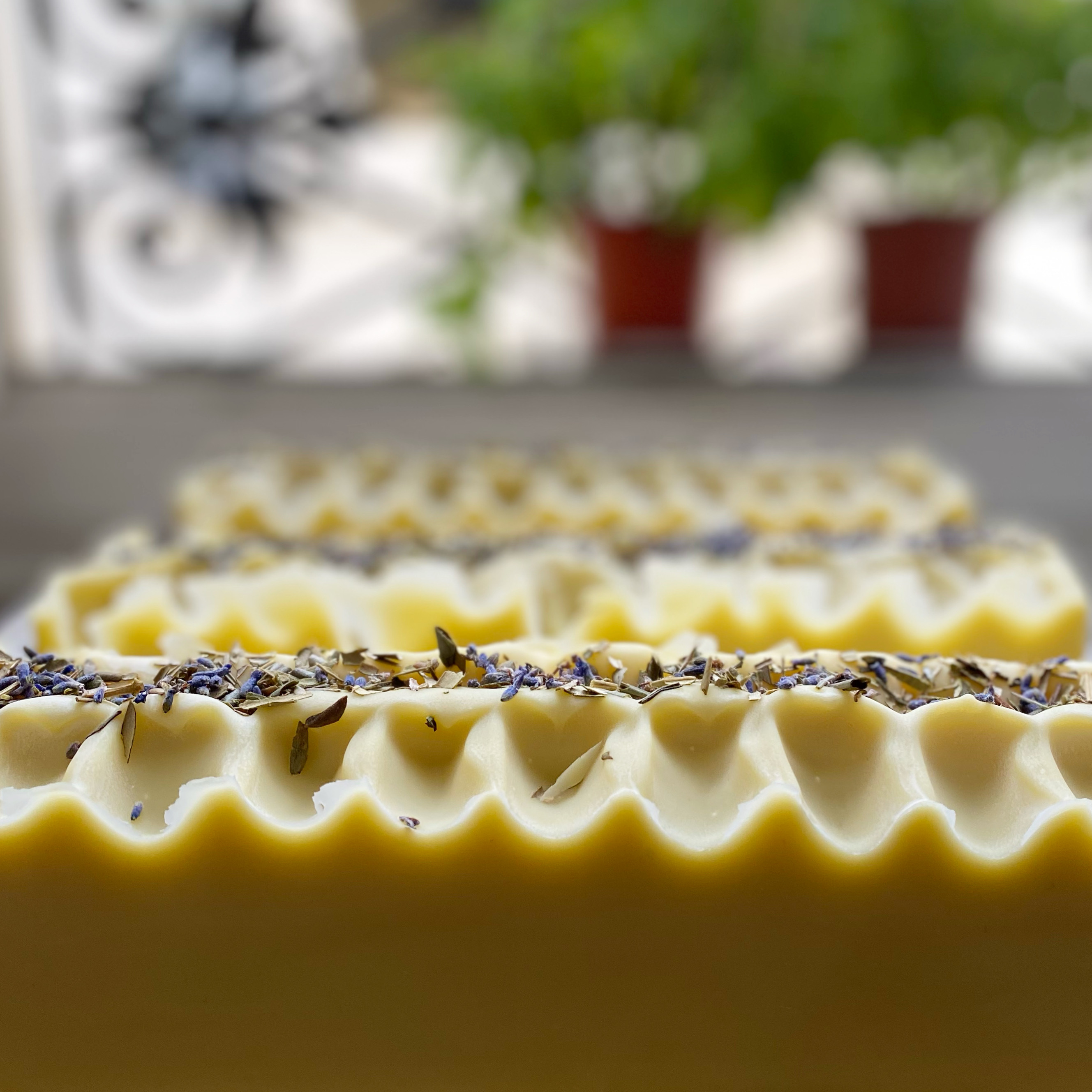Written by Carol Pincione • Posted on September 29, 2021

Handmade natural soap is a product obtained by the combination of a chemical reaction with the creativity and talent of the soapmaker. So you get more familiar with what you are buying, you will have to know that there is not only one way to make soap by hand.
There are mainly 3 methods of soapmaking:
-melt and pour method
-cold process method
-hot process method
A Glimpse into the Methods

1️⃣ Melt and Pour Method
Soaps are made with a pre-made soap base kit. It's an easy method as no caustic ingredient is handled at the time of preparation. Since the store bought soap base is already prepared, you don't really know and can't control the quality of ingredients and the preparation process.
2️⃣ Cold Process Method
Here you are really making soaps from scratch and you can control every single ingredient. This process requires at least:
1. fatty acids from oils and fats
2. water
3. basic substance from sodium hydroxide
When you mix these 3 ingredients in correct proportions at the right temperatures, you'll cause a chemical reaction called "saponification". Once saponification process is over, there is no sodium hydroxide (lye) left in the finished product.
3️⃣ Hot Process Method
Very similar to Cold Process Method with the addition of an external heating source to accelerate the saponification process (a simple pot on a stove or a crockpot for example).
Why using handmade soap?

The ingredients
Handcrafted soaps retain natural glycerin and are made with nourishing oils and butters that moisturize and protects your skin while washing. Natural glycerin seals moistures in your skin without stripping its oils. Big manufactures usually remove glycerin from soap during the making process as they use it to make moisturizers.
Why your skin gets so dry?
Many commercial soaps are made with detergents instead of saponified oils and butters. Most of them contain hardeners and foaming agents, sulfates and parabens. These are chemicals used to make sure a cosmetic has a long shelf life, hardness and high foaming performance but they tend to be aggressive to your skin, clogging pores causing irritation.
Also fragrances are not natural but made synthetically and are one of the leading causes of allergic reactions on the skin.
One More Important Thing to Note:
💚bars of soaps are more eco-friendly💚
Usually soap bars are wrapped in eco friendly packaging that can be easily composted.
